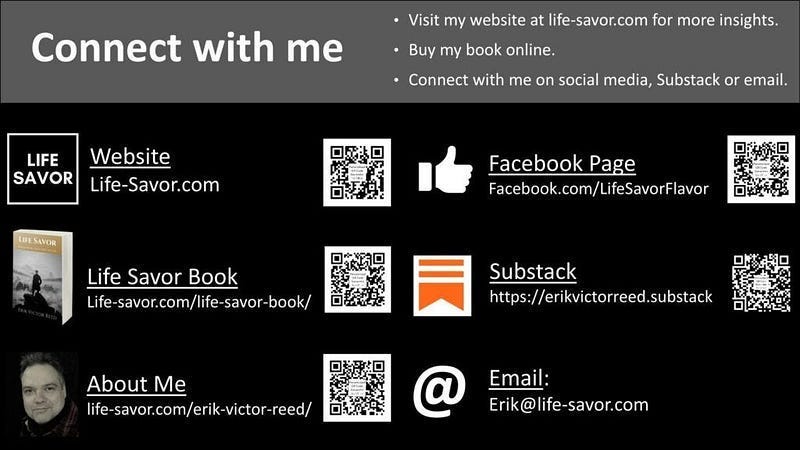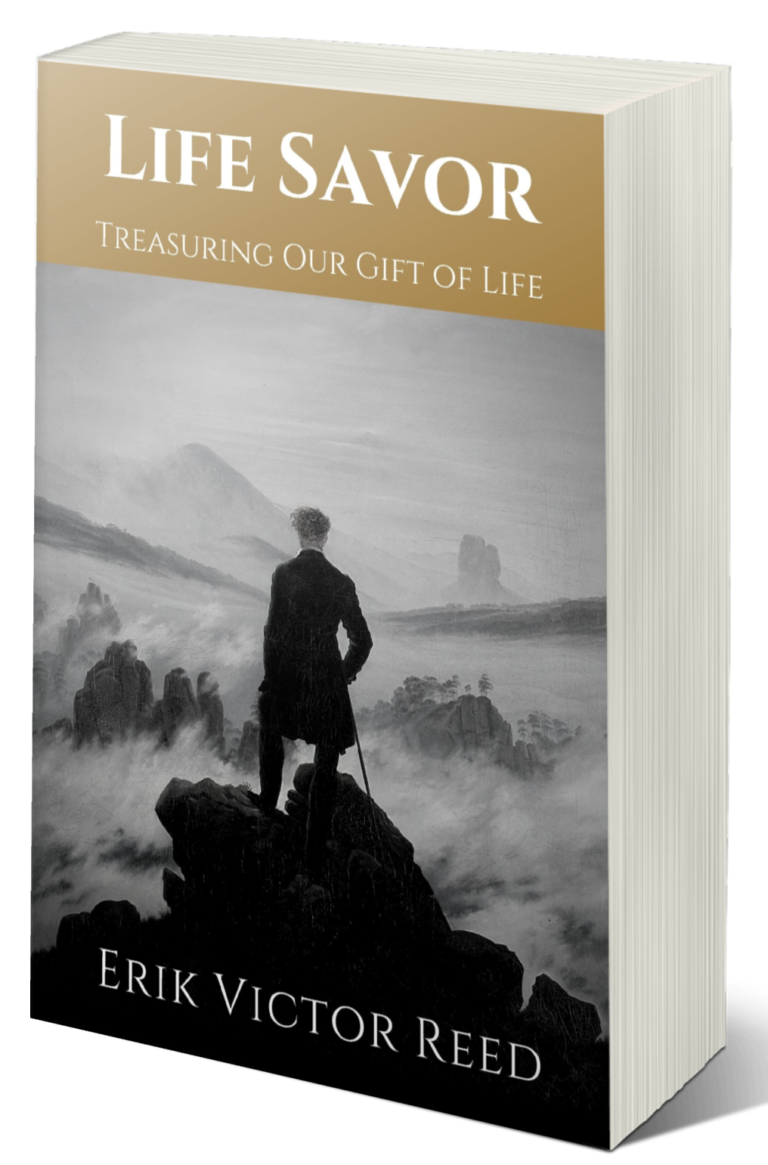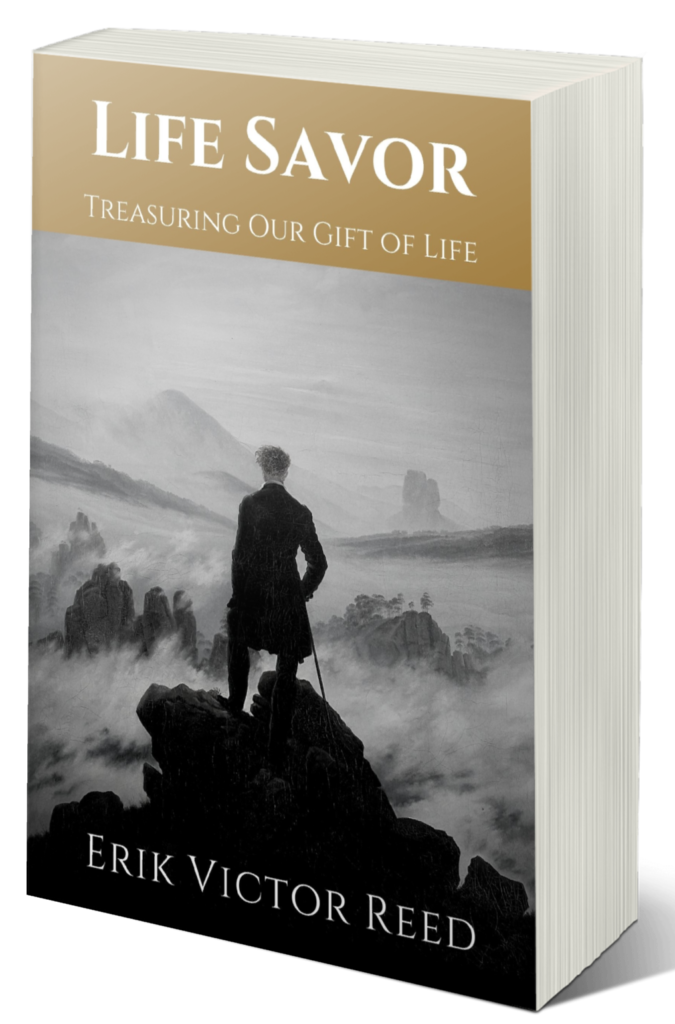Memory, presence, and anticipation as life’s hidden riches
More Than a Clock
We usually treat time as an enemy. We complain that there’s never enough, or we dread how quickly it slips away. But time itself is one of life’s greatest gifts.
Other creatures live mostly in the immediacy of instinct. Humans live in three dimensions: we remember the past, we savor the present, and we anticipate the future. Each dimension enriches us, making life more than a blur of moments.
To experience time this way is not a burden. It is one of our unique privileges.
Memory: The Past We Carry
Memory turns life into story. Without it, each moment would vanish like mist, leaving no continuity, no sense of self. With memory, we carry people, places, and experiences inside us long after they’re gone.
Think of an old song that pulls you back to a summer decades ago. Or the smell of bread that summons your grandmother’s kitchen. These are not just data points in the brain; they are emotional bridges across time.
Memory deepens love. We don’t only love people for who they are now, but for all the moments we have shared with them. And who they have managed to remain across time.
Memory deepens sorrow too, but even grief is dignified because it testifies to bonds that mattered.
Our memories are not perfect. They fade, distort, and select. Yet even in their fragility, they give us the gift of continuity: a life that is more than a series of disconnected events.
Presence: The Now We Inhabit
We’ve all heard the slogan “live in the moment.” But presence isn’t about erasing past and future. It’s about letting yourself be fully alive to now.
Presence is the sip of coffee when you actually taste it, instead of just scrolling your phone. It’s the conversation where you really listen, not just wait for your turn to talk. It’s the walk where you notice the way sunlight falls on leaves.
When we are present, time slows. We stop sleepwalking. We awaken to the gift of existence as it unfolds.
Presence doesn’t deny that we have responsibilities or sorrows. It simply insists that even in the midst of them, there are moments worth noticing — moments that will never come again.
Anticipation: The Future We Imagine
The ability to imagine the future is one of humanity’s great powers. We plan, we dream, we set goals. We picture outcomes that don’t yet exist, and then we move toward them.
Anticipation gives us hope. It allows us to endure hardship for the sake of what’s coming. A student studies late into the night because she envisions graduation. A couple saves money because they imagine a home together. A patient endures treatment because he longs for recovery.
Anticipation is not just about grand plans. It can be as simple as looking forward to tomorrow’s breakfast, or to the next season of your favorite show. The small joys we anticipate help to sustain us.
Of course, anticipation can slip into anxiety. We can become so obsessed with the future that we miss the present. But when held in balance, anticipation is one of the treasures of time — giving us reason to move forward.
Three Generations at the Table
Picture three generations gathered at a dinner table. The grandparents tell stories from their youth — memory at work, stitching the past into the present. The parents pour wine and laugh in the moment — presence alive, filling the air with warmth. The children chatter about what they’ll be when they grow up — anticipation blooming, a glimpse of the future.
One table, three dimensions of time. Together, they form the texture of human life.
Time and Meaning
Time is not just neutral space in which life happens. It’s part of what makes life meaningful.
The fact that moments pass gives them weight. The fact that days end makes them precious. Scarcity intensifies value. A single sunrise would mean little if it were infinite. It matters because that particular sunrise will never come again.
This is why mortality sharpens meaning. If time stretched endlessly, urgency would dissolve. Because it doesn’t, each day is charged with significance.
Practices of Time Awareness
How might we treat time as the treasure it is?
- Honor memory. Keep a journal, collect stories, revisit old photos. Memory enriches life when we tend it.
- Practice presence. Put the phone down. Taste, see, hear, feel. Presence turns ordinary minutes into aesthetic experiences.
- Embrace anticipation. Give yourself things to look forward to. Even small anticipations can keep your spirit buoyant.
Each of these practices guards us from living on autopilot. They remind us that time isn’t just something to get through. It’s something to savor.
Closing Thought
Time is not our enemy. It is our inheritance. Memory roots us, presence awakens us, anticipation draws us forward.
When we treasure time, we realize we’re not simply passing through hours and days. We are living across three dimensions, enriched by the past, alive in the present, beckoned by the future.
To treat time as a gift is to treat life itself as a gift. And that, in the end, is what makes every tick of the clock precious.
For more like this, visit the broader project at life-savor.com, or explore the Life Savor book itself.
To learn more about Life Savor’s philosophy,
read Life Savor: Treasuring Our Gift of Life by Erik Victor Reed.








